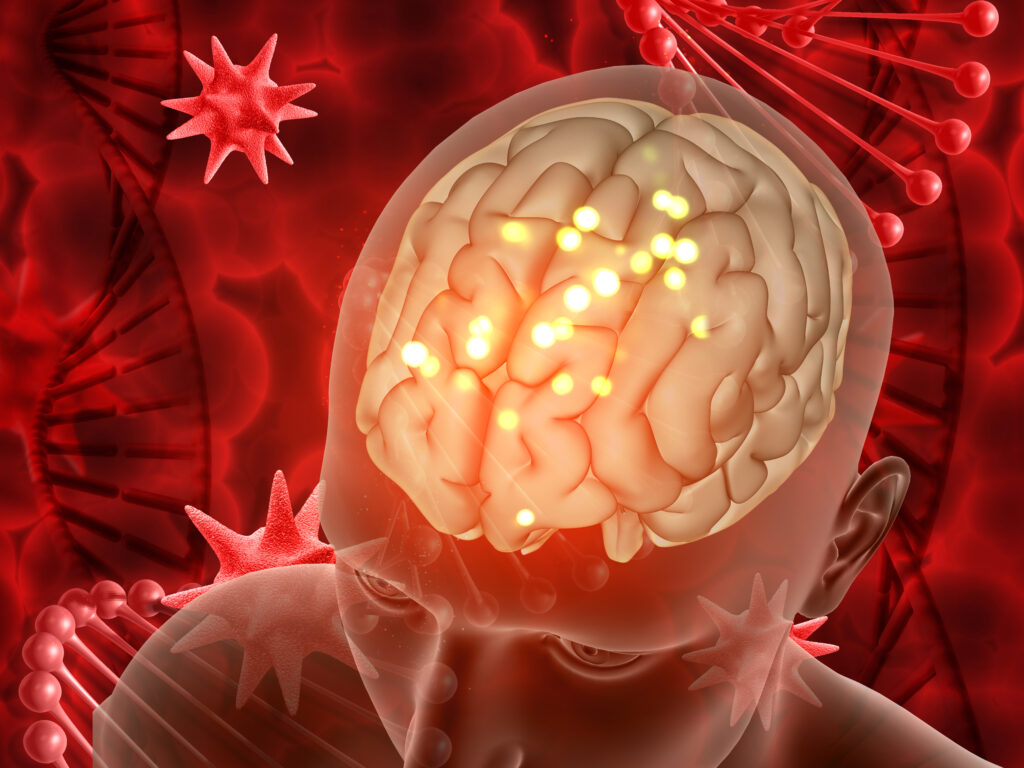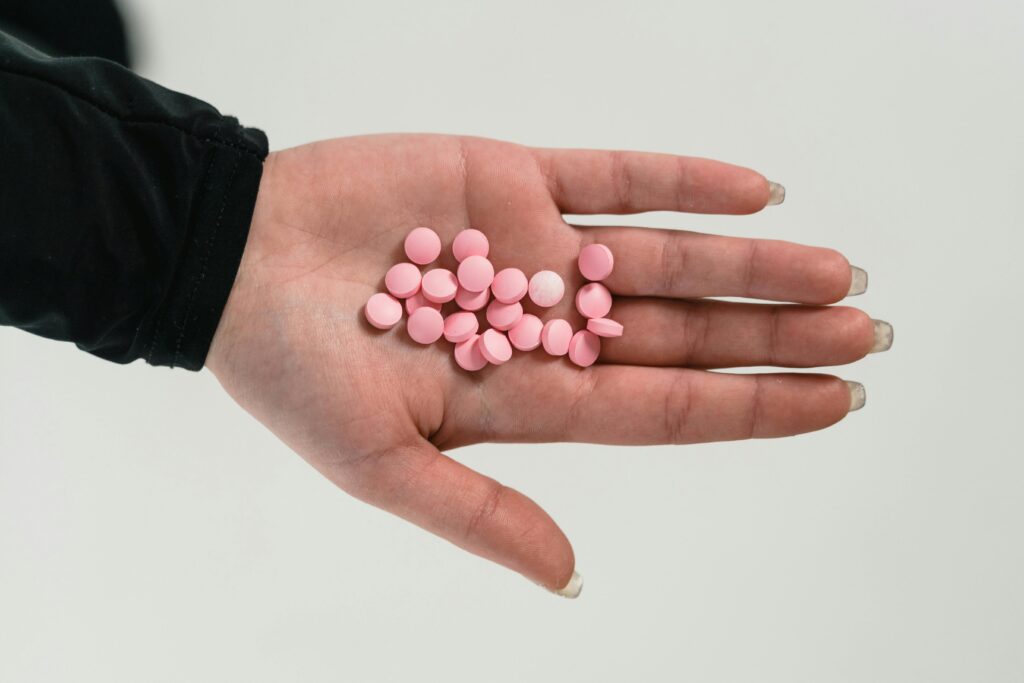⚠️Visitors to our site are often searching for information because they, their best friend, or a family member has unfortunately fallen into use of dangerous substances. We aim to provide educational information on Adderall neurotoxicity but more importantly, we protect people from the dangers of substance abuse! ⚠️
Don’t hesitate to call our admissions department at (855) 855-9593 or click the button below to get substance abuse help for yourself or a loved one.
Manage Your Adderall Addiction With Expert Help
Call Golden Road Recovery Below To Start Healing Today!
Key Points
- Adderall misuse can lead to neurotoxicity, causing long-term damage to the nervous system.
- Symptoms of neurotoxicity include cognitive impairment, behavioral changes, and increased risk of psychological disorders.
- Long-term abuse of Adderall significantly heightens the risk of serotonin syndrome, a potentially fatal condition.
- Medically assisted inpatient rehabilitation is crucial for safely managing withdrawal and overcoming addiction.
- Insurance often covers inpatient rehab programs, making treatment accessible and affordable.
What Is Adderall Neurotoxicity?

Neurotoxicity refers to the damage caused to the nervous system by exposure to harmful substances, including drugs like Adderall. This damage can impair the nervous system’s function and structure, leading to various cognitive and behavioral issues.
Can Adderall Cause Neurotoxicity?
Yes, prolonged misuse of Adderall, a prescription stimulant containing amphetamine, can cause significant neurotoxic effects. Regular misuse or overdosing can lead to irreversible damage in brain cells, manifesting as persistent cognitive deficits and mood disorders. According to the National Institute on Drug Abuse (NIDA), chronic amphetamine use can induce neurotoxic effects, harming nerve terminals and neurotransmitter systems, particularly those involving dopamine and serotonin [1].
Effects of Adderall Misuse
Adderall misuse involves taking higher doses than prescribed or using it without medical supervision. Initial effects include enhanced focus and energy; however, long-term misuse significantly elevates the risk of severe health complications:
- Increased heart rate and blood pressure
- Sleep disturbances and chronic insomnia
- Paranoia, anxiety, and severe mood swings
- Cognitive impairment, memory loss, and difficulty concentrating [2].
Dangers of Long-Term Adderall Misuse
Persistent misuse can lead to profound neurological and psychological disorders. The brain’s dopamine and serotonin pathways, critical for mood regulation and cognitive function, are significantly impacted, leading to:
- Persistent anxiety or depression
- Increased risk of developing psychosis or schizophrenia
- Risk of neurodegenerative diseases linked to neuronal damage
- Serotonin syndrome, characterized by agitation, hallucinations, rapid heart rate, fever, and potentially death [3].
Manage Your Adderall Addiction With Expert Help
Call Golden Road Recovery Below To Start Healing Today!
Serotonin Syndrome and Adderall
This syndrome is a potentially life-threatening condition associated with excessive serotonergic activity in the nervous system. Adderall misuse, particularly when combined with other substances affecting serotonin levels (such as antidepressants), significantly increases the risk. Symptoms include confusion, hallucination, rapid heartbeat, dilated pupils, muscle rigidity, and severe gastrointestinal distress [4]. Immediate medical intervention is crucial, as untreated serotonin syndrome can lead to coma or death.

How to Treat Adderall Toxicity
Adderall toxicity requires immediate medical attention. Initial treatments typically involve supportive measures to stabilize vital functions and reduce neurological damage. Activated charcoal, sedatives, and intravenous fluids may be used. Critically, medically supervised detoxification programs can prevent severe withdrawal symptoms and reduce the risk of further neurological harm [5].
The Importance of Medically Assisted Inpatient Treatment
Detoxifying from Adderall can present serious medical challenges and complications, making inpatient medically assisted treatment (MAT) highly recommended.
Inpatient rehabilitation provides:
- 24-hour medical supervision to safely manage withdrawal symptoms
- Medication management to mitigate withdrawal symptoms and prevent complications
- Structured therapeutic interventions, such as cognitive-behavioral therapy (CBT) and group therapy.
- A safe, controlled environment free from external triggers and
stressors that may lead to relapse
Manage Your Adderall Addiction With Expert Help
Call Golden Road Recovery Below To Start Healing Today!
Medications for Recovery

Medical professionals may utilize various medications during inpatient rehabilitation to manage symptoms effectively, including:
- Benzodiazepines for anxiety and agitation during detoxification
- Antipsychotic medications to treat symptoms of paranoia or psychosis
- Antidepressants to stabilize mood and treat co-occurring mental health conditions [6].
Support Groups
Support groups are a crucial aspect of the recovery process, offering emotional and psychological reinforcement that significantly reduces the risk of relapse. Peer support and mutual understanding provided in these groups often enhance personal motivation and commitment to long-term sobriety.
Does Insurance Cover Adderall Rehab Treatment?
Yes, most health insurance plans, including private and government-sponsored programs like Medicaid and Medicare, typically provide coverage for substance abuse rehabilitation. Policies usually cover inpatient treatment, including detoxification, medications, and therapy sessions. It’s advisable to verify coverage details directly with your insurance provider.
How Golden Road Recovery Can Help
Golden Road Recovery offers comprehensive, medically assisted inpatient rehabilitation tailored specifically to the needs of individuals suffering from Adderall misuse and neurotoxicity. Our approach includes:
- Thorough medical assessment upon admission to design personalized detoxification and rehabilitation plans
- Evidence-based treatments to address addiction and its neurological impacts
- Professional medical supervision throughout detoxification to ensure patient safety
- Individual and group therapies focusing on psychological health and strategies to sustain sobriety
- Aftercare planning and continuous support to maintain long-term recovery
Manage Your Adderall Addiction With Expert Help
Call Golden Road Recovery Below To Start Healing Today!
Frequently Asked Questions (FAQs)
Q1: What are the early signs of Adderall neurotoxicity?
A: Early symptoms include chronic insomnia, irritability, anxiety, and cognitive issues like memory loss.
Q2: Is Adderall neurotoxicity reversible?
A: Early detection and cessation of misuse can lead to partial recovery, but severe neurotoxicity can cause lasting damage.
Q3: Why is inpatient treatment better for Adderall addiction?
A: Inpatient treatment provides immediate medical care, constant monitoring, structured environments, and comprehensive therapies to ensure a safer and more successful recovery.
Q4: Can serotonin syndrome from Adderall be fatal?
A: Yes, serotonin syndrome is potentially fatal if not treated immediately, highlighting the importance of medically supervised care.
Q5: Does Golden Road Recovery accept insurance for Adderall rehabilitation?
A: Yes, Golden Road Recovery accepts various insurance plans. It’s important to verify your coverage with your insurance provider directly.
Conclusion
Adderall neurotoxicity poses severe health risks, but recovery is achievable through medically supervised inpatient rehabilitation. Golden Road Recovery offers a compassionate, structured, and medically sound approach to safely manage withdrawal symptoms, address neurological damages, and support individuals in achieving long-term sobriety. Contact us today and take the first critical step towards healing and reclaiming your life.
Manage Your Adderall Addiction With Expert Help
Call Golden Road Recovery Below To Start Healing Today!
References
[1] National Institute on Drug Abuse (NIDA). “Amphetamines.” https://nida.nih.gov/publications/drugfacts/prescription-stimulants
[2] Substance Abuse and Mental Health Services Administration (SAMHSA). “Prescription Stimulants.” https://library.samhsa.gov/product/advisory-prescription-stimulant-misuse-among-youth-and-young-adults/pep21-06-01-003
[3] U.S. Food and Drug Administration (FDA). “Adderall and Serotonin Syndrome.” https://www.accessdata.fda.gov/drugsatfda_docs/label/2017/011522s043lbl.pdf
[4] National Library of Medicine (NLM). “Serotonin Syndrome.” https://www.ncbi.nlm.nih.gov/books/NBK482377/
[5] National Library of Medicine (NLM). “Amphetamine Toxicity” https://www.ncbi.nlm.nih.gov/books/NBK470276/
[6] National Library of Medicine (NLM). “The Serotonin Syndrome” https://pmc.ncbi.nlm.nih.gov/articles/PMC6539562/




